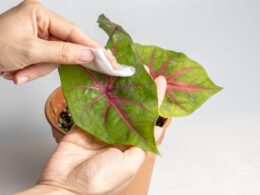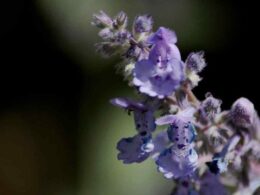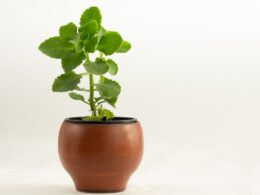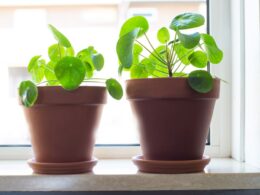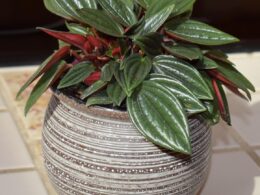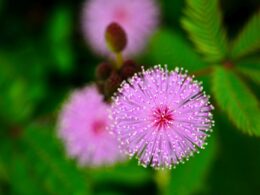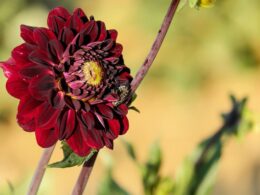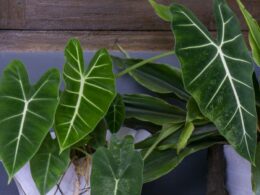What Are Foliage Houseplants?
Foliage plants are any type of plant that is grown for its foliage, rather than its flowers. This can include both tropical and non-tropical plants, so the exact foliage plant care instructions will vary from species to species. Some common foliage plants include:
- cactuses;
- Chinese evergreen;
- ferns;
- palms;
- philodendron;
- pothos;
- prayer plant;
- rubber plant;
- spider plant;
- swiss cheese plant;
- ZZ plant.
Some foliage plants have variegated leaves, as colorful as flowers, while others are simply different shades of green. All of them can add depth and interest to your home décor – after all, few flowers would look good without their foliage!
Why Are Foliage Plants Important?
Foliage plants are important for a number of reasons. First, they can help to purify the air in your home. They also help to increase humidity and can even reduce noise levels. Additionally, foliage plants can really brighten up a room and add some extra life to it.
In gardens, foliage plants with green leaves are often used as ground cover or to fill in empty spaces. They can also be used to create privacy screens or windbreaks. Regardless of how you use them, foliage plants are an essential part of any garden.
Tropical Foliage Plant Care Tips
Tropical foliage plants are those that come from warm, humid climates. They typically need more water and humidity than other types of foliage plants. Here are a few tips for tropical foliage plant care!
- Water regularly, making sure to keep the soil moist but not soggy.
- Mist the leaves with water every day or so.
- Place your tropical plants in a bright, indirect light.
- Fertilize every month (or more frequently) during the growing season.
- Check for pests regularly, as tropical foliage plants are especially susceptible.
Of course, these are just general tips – be sure to do your research on specific care instructions for your tropical plants. The vast majority need a soil rich in organic matter and high humidity, at least.
Cactus and Succulent Foliage Plant Care Tips
Cactuses and succulents are two of the most popular foliage plant types. These drought-tolerant plants are perfect for those who don’t have a green thumb. Here are a few tips for cactus and succulent foliage plant care:
- Water only when the soil is completely dry – over-watering is one of the most common problems with these plants.
- Place in a bright, sunny spot.
- Fertilize every other month (or less frequently) during the growing season.
- Check for fungal diseases, such as powdery mildew and leaf spot.
The exact foliage plant care routine will vary depending on the species, and this also applies to cacti and succulents. Do your research before you buy one of them, and you’ll be sure to have a plant that thrives!
Caring for Indoor Ferns
Ferns often come to mind first when we think of foliage plants, and for good reason! They’re easy to care for and add a touch of elegance to any room. Here are a few tips for growing ferns in your home.
- Water regularly, making sure the soil stays moist but not soggy.
- Place in a shady spot – too much sun will damage the leaves.
- Fertilize every month during the growing season.
- Remove dead leaves and fronds as needed.
- Check for pests, such as aphids, mealybugs, and spider mites.
Again, these are just general tips – be sure to look up specific care instructions for your fern species. Some ferns can tolerate more sun than others, for example.
Caring for Pothos
Pothos is easy to care for and can tolerate a wide range of conditions. For a good start, place it in a spot with filtered light or partial shade. You’ll need to water it every 1-2 weeks, allowing the soil to dry out in between waterings. Apply fertilizer every 2-3 weeks during the growing season.
These plants are happiest at humidity levels of 50% to 70%. You can increase the humidity around your pothos by placing the pot on a tray of pebbles and water. Another thing to keep in mind is that pothos is susceptible to spider mites and mealybugs.
Caring for Philodendrons
Philodendrons are easy to grow as well. Proper foliage plant care for this species starts with placing it in bright, indirect light. Then, water your philodendrons every week in the spring and summer, and mist the leaves with water every few days. Also, fertilize your philodendrons once or twice a month during the growing season. During the fall and winter, you can cut back on watering to once every two weeks.
Caring for Prayer Plants
Prayer plants are a popular foliage plant because of their unique leaves. The leaves fold up at night, as if the plant is praying. These plants like medium to bright, indirect light and slightly moist soil – water them when the top 25% of soil is dry to the touch. You can also mist the leaves with water every few days. Fertilize your prayer plant every 2 weeks from spring through fall.
Caring for Rubber Plants
Rubber plants are ideal for those who want a foliage plant that’s easy to care for. They can tolerate a wide range of light conditions, from low light to bright light (but never direct). Water your rubber plant every 7 to 10 days, allowing most of the soil to dry out in between waterings. A monthly dose of fertilizer is all that’s needed during the growing season.
Enjoy the Display of Foliage Indoor Plants!
As you can see, foliage plant care isn’t difficult – but there are a few things to keep in mind, depending on the type of foliage plant you have. With a little research and care, you can have foliage plants that thrive indoors.
What are your favorite foliage plants? Let us know in the comments below!








